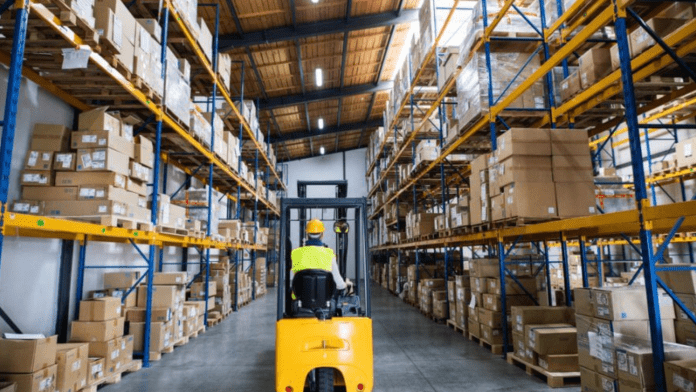In the dynamic world of Fast-Moving Consumer Goods (FMCG), efficient warehousing has emerged as a catalyst for growth and success. With the Indian FMCG industry witnessing unprecedented growth, expected to reach $103.7 billion by 2025, the need for modern warehousing solutions has never been more crucial. This thought leadership article delves into the key modern warehousing trends that are driving the growth of the FMCG sector in India.
FSSAI Regulatory Compliances
Food safety and quality are paramount in the FMCG sector, and adherence to Food Safety and Standards Authority of India (FSSAI) regulations is non-negotiable. This requirement has necessitated a transformation in warehousing infrastructure. FSSAI-compliant warehouses with the appropriate licenses are mandatory for storing FMCG products. Achieving compliance involves substantial infrastructure changes, including temperature-controlled storage, sanitation measures, and adherence to strict hygiene standards. Warehousing providers have had to invest significantly in upgrading their facilities to meet these stringent requirements, ensuring the safe storage of perishable goods.
Inventory Management
The FMCG sector deals with a vast array of products, each with different shelf lives, handling requirements, and packaging. Managing countless Stock Keeping Units (SKUs) and batches while maintaining the First-In-First-Out (FIFO) principle can be a logistical nightmare. Modern warehousing solutions have responded to this challenge with robust Warehouse Management Systems (WMS) that offer customizable features to meet the unique needs of each customer. These systems help optimize inventory management, reducing wastage and ensuring product freshness.
Temperature-Sensitive Environment
Temperature-sensitive goods, including perishable food items and pharmaceuticals, require precise storage conditions. Understanding these requirements and creating the necessary infrastructure is paramount. Modern warehouses now feature specialized temperature-controlled zones to accommodate such products. This investment in temperature-controlled storage not only ensures compliance with industry regulations but also extends the shelf life of products, reducing wastage and enhancing product quality.
Quality Control
Food and pharmaceutical storage in India are heavily regulated by government authorities. Maintaining hygiene and stringent quality control measures in warehouses is not just a best practice; it’s a legal requirement. Modern warehousing providers have responded by implementing rigorous quality control procedures, including regular inspections, pest control, and documentation to ensure compliance. This commitment to quality helps build trust with FMCG companies, ensuring the safety and integrity of their products throughout the supply chain.
Seasonality and Peak Management
One of the major challenges faced by the FMCG sector is the seasonality of demand. To optimize storage during non-peak seasons and efficiently manage inventory spikes during peak seasons, proper planning and backup space solutions are essential. For instance, companies primarily focused on skincare products, experience a surge in inventory holding before winter and a decrease during summer. Tailored warehousing solutions that adapt to these fluctuations are vital to maintaining cost-efficiency and customer satisfaction.
Scalability
Scalability is a key consideration for modern warehousing in the FMCG sector. With the unpredictability of demand peaks, 3PLs (Third-Party Logistics providers) must have a scalable plan in place to accommodate rising storage requirements. This scalability ensures that businesses can meet sudden spikes in demand without compromising on storage space, thus enhancing their agility in the market.
High Distribution Costs
FMCG products often move in bulk, making the cost of transportation a significant challenge. Given the limited profit margins in this sector, controlling distribution costs is crucial for profitability. Modern warehousing solutions often incorporate strategies to reduce distribution costs, such as optimizing transportation routes, implementing Just-In-Time (JIT) inventory practices, and leveraging technology to enhance supply chain visibility.
Modern warehousing trends have become indispensable drivers of growth in the FMCG sector in India. From complying with stringent regulatory requirements to managing inventory efficiently, catering to temperature-sensitive products, ensuring quality control, and addressing seasonality challenges, warehouses have evolved to meet the unique needs of this thriving industry. Scalability and cost control strategies further cement the role of modern warehousing in supporting the growth of FMCG businesses. As the FMCG sector continues to expand, staying ahead of these warehousing trends will be essential for companies looking to thrive in this competitive landscape.
(Authored By: Mr. Varun Gada, Director, LP Logiscience- A Liladhar Pasoo Company)





